The Mathematical, Computing, and Statistical Sciences Division of CUR is pleased to announce three awards to honor mentors for their success in mentoring undergraduate students in research. Faculty mentoring interdisciplinary projects are encouraged to apply as long as those projects involve a major mathematics, computer science, or statistics component.
Typically, one award will be made in each of the three categories below, but in the case of exceptional applications, more than one of the awards may be given in the same category.
- Early Career: Faculty who are 0-6 years past their Ph.D.
- Mid Career: Faculty who are 7-15 years past their Ph.D.
- Advanced Career: Faculty who are more than 15 years past their Ph.D.
Deadline
Application submissions were due by March 31, 2025.
Please upload all nomination materials as one combined PDF, 16MB maximum file size.
Nomination Process
Applications should be compiled into one PDF, 16MB max file size package containing the following items:
- Applicant Letter: The mentor will provide an explanation of their cumulative mentoring activities involving undergraduate research students. The letter should clearly link to the Evaluation Criteria Sheet and should include a brief discussion on the applicant’s mentoring goals and/or philosophy. (two page limit)
- Curriculum vitae: List only details relevant to applying for the award including a brief bio info for applicant (e.g., contact and education info), names of undergraduate students mentored, presentations by these students, publications by these students, awards received, etc. See Evaluation Criteria Sheet. (two page limit)
- Letter from a Colleague: A recommendation letter from a colleague of the applicant who can address the applicant’s mentoring of students in undergraduate research (two page limit).
- Letters from Students: Two recommendation letters from students who were mentored by the applicant. One such letter must be from a student who was mentored by the applicant within the past five years. (one page limit per letter).
Review Process
Division Councilors will review the completed applications and will determine the award winner. The awarded mentors will be notified by the end of May.
Review Criteria
- Evidence of undergraduate student mentoring.
- The number of students mentored in research.
- Evidence of professional development of students mentored.
- The number of students presenting their work at conferences and meetings. National and discipline-specific conferences are generally considered more important than internal or regional conferences.
- The number of publications co-authored by students. Publications in discipline-specific journals should be considered more important than those in general undergraduate research journals.
- Evidence of activities within the research program that develop students into effective researchers as they are going through the experience. These activities should provide support that enables student success. Examples: structured mentoring programs (like pairing with more advanced students), regular faculty-student meetings, expectations for students to write research reports and to give presentations, etc.
- Specific examples as described in the letter of application and the letters of support by the colleague and students.
- Reflective discussion of mentoring goals.
- Evidence of impact and success.
- Clear evidence of how the research experience has impacted post-graduate success in graduate school or in students’ careers.
- Awards received by students for their presentations or publications.
- Awards or grants received by faculty for mentoring students.
- Publications or invited presentations given about mentoring students.
- Specific examples as described in the letter of application and the letters of support by the colleague and students.
Questions
For questions regarding this award, please reach out to CUR@CUR.org.
Award Recipients

Mid-Career Award: Mihhail Berezovski, Embry-Riddle Aeronautical University, Department of Mathematics
For the past ten years, Mihhail Berezovski has been at the forefront of creating data science expertise, cutting-edge data science applications and techniques in domain sciences, and successful cross-disciplinary and cross-sector engagement strategies. He implemented a sustainable and successful model that provides students with an opportunity to perform applied data science research by exposing them to problems outside of academia. The overarching learning goal is that the students will have the capability to conduct authentic data-enabled research, based on original real-world problems provided directly by businesses and industry. His innovative approaches are aimed at empowering and motivating students from historically underrepresented groups in STEM to engage in undergraduate research. Over 200 students from 26 universities have participated in over 70 major research projects under his supervision over the past eight years. These projects have resulted in numerous publications, keynote lectures, and multiple presentations with 150+ students at various national conferences. He received funding from a number of organizations, including the National Science Foundation and the Mathematical Association of America. He has made significant contributions to mentorship and teaching and has received several awards, including the ERAU COAS Dean’s Award for Leadership and Innovation in 2022, the ERAU Faculty Mentor of the Year Award in 2022, and ERAU COAS Award for Undergraduate Student Mentorship in 2023.

Mid-Career Award: Nicholas Caporusso, Northern Kentucky University, Department of Computer Science
Nicholas got his BSc and MSc in Informatics (both cum laude) from the University of Bari (Italy) and obtained a Ph.D. in Computer Science and Engineering from IMT – Institute for Advanced Studies (Lucca, Italy). His Master’s and Ph.D. theses received two awards from the Italian Association for Automatic Calculus (AICA). In 2011, he obtained a Fulbright scholarship in Technology Entrepreneurship at Santa Clara University (California, USA). He founded 4 businesses in the IT space and QIRIS, a non-profit organization devoted to supporting innovation among youth. His companies received more than 20 international awards and in 2015, Nicholas was nominated by MIT Technology Review Italy among the 10 best innovators under 35. In 2017, he received a prestigious Marie Skłodowska-Curie fellowship in robotics and automation at the University of Salford (Manchester, UK). Then, he served for 2 years as an Assistant Professor in Informatics at Fort Hays State University, where he received 5 best faculty awards. In 2019, he joined Northern Kentucky University (NKU), where he was promoted to the Associate Professor rank in 2023. His teaching and research interests include Interactive systems design, human factors, and pervasive Human-Machine Interaction. Nicholas published over 80 peer-reviewed scholarly articles. In 2022, he helped launch the First Year Research Exposure (FYRE) program, dedicated to involving freshmen in research. In addition to teaching, Nicholas serves as the program director of the Bachelor’s degree in Applied Software Engineering and as the director of the Master’s program in Computer Science. In 2023, he established the HCI Lab, one of NKU’s largest and most diverse and prolific research teams. In 2024, he received NKU’s Excellence in Research, Scholarship, and Creative Activity award and the Outstanding Mentor Award from NKU’s Institute for Student Research and Creative Activity (ISRCA).

Advanced Career Award: Caroline Parsons Lubert, James Madison University, Department of Mathematics and Statistics.
Caroline Lubert is a Professor of Mathematics in the College of Science and Mathematics at James Madison University. She received her first class B.Sc. in Mathematics from the University of Exeter, U.K., and her Ph.D. in Engineering from the same institution. Her research area is Aeroacoustics, and she designed and built an anechoic chamber at JMU where she and her students study the noise emitted by turbulent Coanda wall jets. A particular application is the rocket launch noise emitted by Northrop Grumman’s Antares rocket as it lifts off from NASA Wallops Flight Facility (WFF) on the Eastern Shore of Virginia to resupply the International Space Station. She and her students have visited WFF many times and taken measurements of the rocket as it launches, to use in conjunction with their experimental and theoretical work at JMU. She enjoys teaching and working with students and has mentored more than 80 undergraduate students over her career. She and her students have co-authored over 30 publications in high quality peer-reviewed journals. Additionally, her students have presented at a number of regional and national conferences. She was awarded a SCHEV Outstanding Faculty Award by the state of Virginia in 2017.
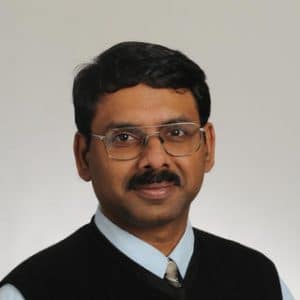
- Advanced Career: Padmanabhan Seshaiyer, George Mason University, Department of Mathematical Sciences
- Dr. Padmanabhan Seshaiyer (Padhu) is a Professor and Director at George Mason University (GMU) where he has served in multiple leadership positions including the Associate Dean for Academic Affairs, Director of the STEM Accelerator Program and Director of the Center for Outreach in Mathematics Professional Learning and Educational Technology. During the last decade, he has initiated and directed a variety of research, educational and outreach programs including faculty development, post-graduate, graduate and undergraduate research, K-12 outreach, teacher professional development, and enrichment programs, to foster the interest of students and teachers in STEM education at all levels. He currently serves as the Chair of the US National Academy of Sciences commission on Mathematics Instruction, an elected member of the Mathematics and Computer Science division of the Council on Undergraduate Research and an appointed member by the VA Governor to the VA STEM Advisory board and the VA Workforce Development board. He has also served as a Program Director at the National Science Foundation. In 2022, he was honored with the Council on Undergraduate Research MCS Inclusivity Award for his efforts to broaden access to mathematics and/or computer science, with a focus on implementation of real-world research projects for undergraduate students. In April 2019, he was selected as one of the “Figures that Matter” for his contributions to Academia and Society and was awarded an honorary doctorate by Vrije Universiteit Brussels.
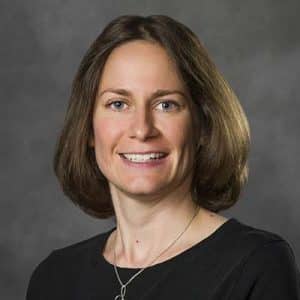
- Advanced Career: Dewey Taylor, Virginia Commonwealth University, Department of Mathematics and Applied Mathematics
- Dewey Taylor is a Professor of Mathematics in the College of Humanities and Sciences at Virginia Commonwealth University. She received her B.S. in mathematics from Virginia Commonwealth University and her M.S. and Ph.D. from North Carolina State University. She enjoys teaching and working with students and is an advocate for diversity, equity and inclusion. She mentored over 100 undergraduate students and her students co-authored over 30 publications in high quality peer reviewed journals, including Mathematical Biosciences, PLOS NTD, Journal of Math. Biology others. She won the 2017 VCU Outstanding Faculty Mentor Award and 2022 VCU Distinguished Teaching Award. With Drs. Dorff and Rychtar, she co-edited an MAA book ”Expanding Undergraduate Research in Mathematics: Making UR More Inclusive”.
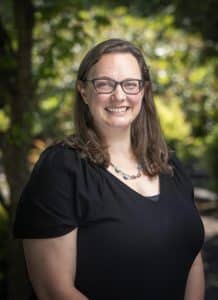
- Mid-Career: Anna Ritz, Reed College, Department of Biology
- Dr. Anna Ritz is an Associate Professor of Biology at Reed College in Portland, Oregon. A computer scientist by training, she earned her master’s and Ph.D. in computer science from Brown University and was a postdoctoral researcher at Virginia Tech. Dr. Ritz works at the intersection of computer science and biology, where she develops algorithms to analyze and interpret large biological datasets. Her recent work focuses on molecular interaction networks and their use in understanding how molecules work on a systems level to respond to cellular signals and regulate cellular responses.
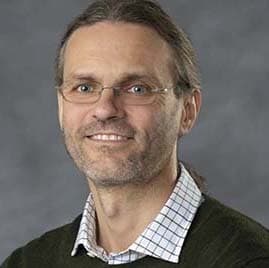
- Advanced Career: Jan Rychtar, Virginia Commonwealth University, Department of Mathematics and Applied Mathematics
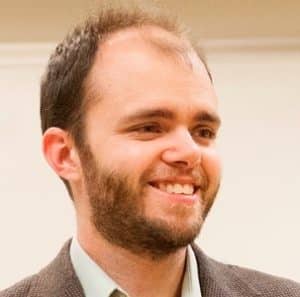
- Mid Career: Dominic Klyve, Central Washington University, Department of Mathematics
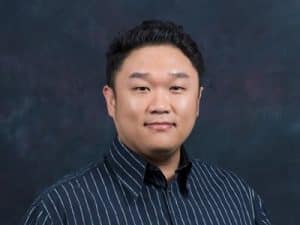
- Early Career: Daehan Kwak, Kean University, School of Computer Science and Technology
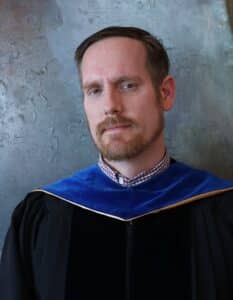
- Advanced Career: Christopher Seaton, Rhodes College, Department of Mathematics and Computer Science
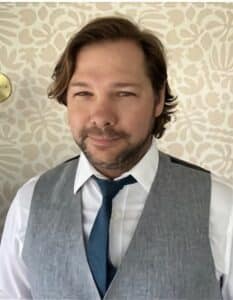
- Mid Career: Erik Insko, Florida Gulf Coast University, Department of Mathematics
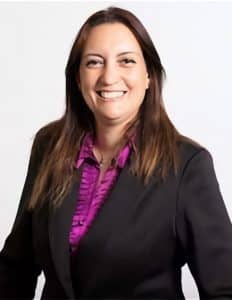
- Early Career: Rania Hodhod, Columbus State University, TSYS School of Computer Science
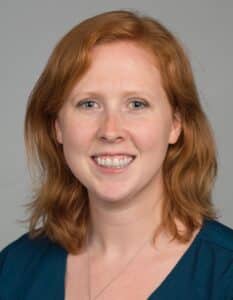
- Mid Career: Carolyn Otto, University of Wisconsin-Eau Claire, Department of Mathematics
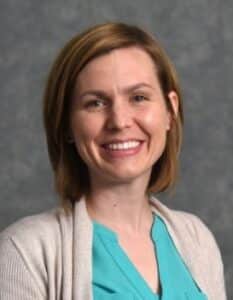
- Mid Career: Rachael Miller Neilan, Duquesne University, Department of Mathematics and Computer Science
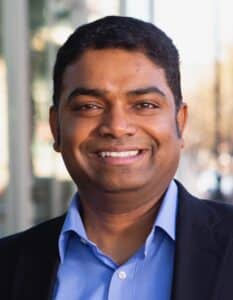
- Early Career: Vinodh Chellamuthu, Dixie State University, Department of Mathematics
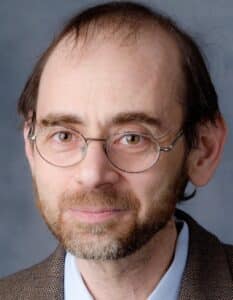
- Advanced Career: Kenneth Berenhaut, Wake Forest University, Department of Mathematics and Statistics
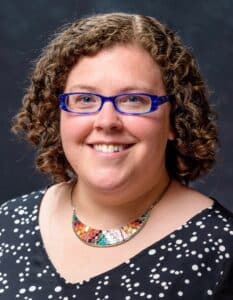
- Mid Career: Manda Riehl, Rose-Hulman Institute of Technology, Department of Mathematics
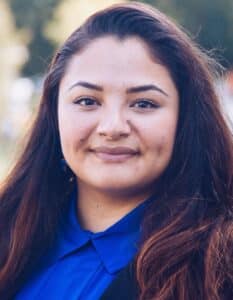
- Early Career: Pamela Harris, Williams College, Department of Mathematics and Statistics
- Liz Bouzarth, Furman University, Department of Mathematics
- Gabriela Marcu, University of Michigan, School of Information
- Karl Schmitt, Valparaiso University, Department of Mathematics and Statistics
- Mason Porter, UCLA, Department of Mathematics
- Jennifer Daniel, Lamar University, Department of Mathematics
- Zach Abernathy, Winthrop University, Department of Mathematics
- Alex Capaldi, Valparaiso University, Department of Mathematics and Statistics
- Patricia Morreale, Kean University, Department of Computer Science
- Anthony Tongen, James Madison University, Department of Mathematics and Statistics
- Kumer Pial Das, Lamar University, Department of Mathematics
- Hala ElAarag, Stetson University, Department of Mathematics and Computer Science
- Narayan Thapa, Minot State University, Department of Mathematics and Computer Science
- Chad Awtrey, Elon University, Department of Mathematics and Statistics
- Daniel Maxin, Valparaiso University, Department of Mathematics and Computer Science
- Akilu Zeleke, Michigan State University, Department of Statistics and Probability
- Aihua Li, Montclair State University, Department of Mathematical Science
- Lara Pudwell, Valparaiso University, Department of Mathematics and Computer Science
- Patrick Rault, SUNY – Geneseo, Department of Math


